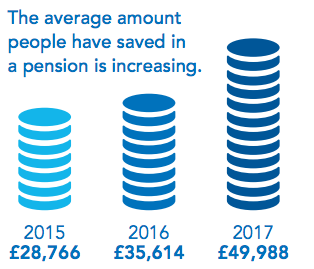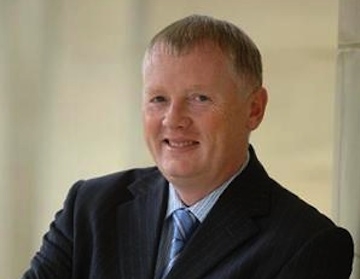The introduction of the pension freedoms two years ago has resulted in profound changes to retirement planning with the number of people consulting a Financial Planner or financial adviser doubling in two years, according to new research.
The research into the pensions market landscape since the changes has also found that 14% of working age people are saving more into their pension as a direct result of the changes, equating to some 5.5 million people in the UK contributing more to a private or workplace pension because of the reforms.
Tomorrow (Thursday 6 April) marks two years since the introduction of the reforms which have allowed people the freedom to access their full pension fund from age 55. The freedoms have led to major upheaval with people saving more, showing more interest in seeking advice and many being more realistic about their pension projections, according to Aegon which commissioned the second anniversary research covering 2,004 people during December 2016.
On average, people now have £50,000 saved in pensions, up from £29,000 in April 2015 although men have on average £73,568 invested, three times the £24,869 held by women, underlining gender inequality. Some 15% of people said they have realised they need to plan more for retirement, up from 10% in April 2016 and the proportion of people engaging with an adviser on their plans for retirement has almost doubled in the past 12 months. The percentage of people seeking Financial Planning advice specifically on the pension freedoms rose from 2.7% in 2016 to 4.5% in 2017.
Aegon says the research found that one in five people in the UK would welcome initiatives that improve access to financial advice or guidance, rising to one in four people (23.10%) nearing retirement.
The company believes that people’s Financial Planning needs are changing as a result of the pension freedoms. In April 2015 half of the UK population (50%) had taken no steps to review their retirement plans but this has fallen by 15%, to just over a third (36%). One in five (22%) people have reviewed their pension plans in the past six months.
It also looks as if greater scrutiny by consumers of their own pension pots is encouraging people to be more realistic. The average annual income people would like in retirement is now £32,000, a fall from the £38,000 in April 2016, and lower again than the £41,000 people were hoping to retire on at the time of the pension freedoms.

Source: Aegon
Despite the positive signs, over a third (36%) of people have never engaged with their pension savings. One in five people (22%) claim they simply don’t understand how to review their plans for retirement, 15% of people say the lack of online services or information prevents them from checking up on their pension savings and for one in ten people (12%) the main barrier is the fear of seeing how little they have saved.
Steven Cameron, pensions director at Aegon, said: “Two years on and all the signs point to the pension freedoms having paved the way for a smoother road to retirement. People have moved up a gear, saving more and becoming more engaged with their pensions.
“Crucially, the proportion of people speaking to an adviser about their retirement saving and income options is almost double what it was in April 2016. Giving retirees the freedom to do as they please with their money is having an impact not only on those who are taking advantage of that freedom today, but the trickle effect is positive down the generations. It seems that bringing freedoms to pensions and saving for retirement has boosted their appeal across working life, with 5.5 million UK savers contributing more to their pots. However, there’s still a long way to go.
“Over a third of the adult population have never taken any action that affects their plans for retirement and these people must be encouraged to engage and save more, or face a very uncertain future. And there’s a growing issue as more and more people are self-employed and won’t have the benefit of a workplace pension at all.”

